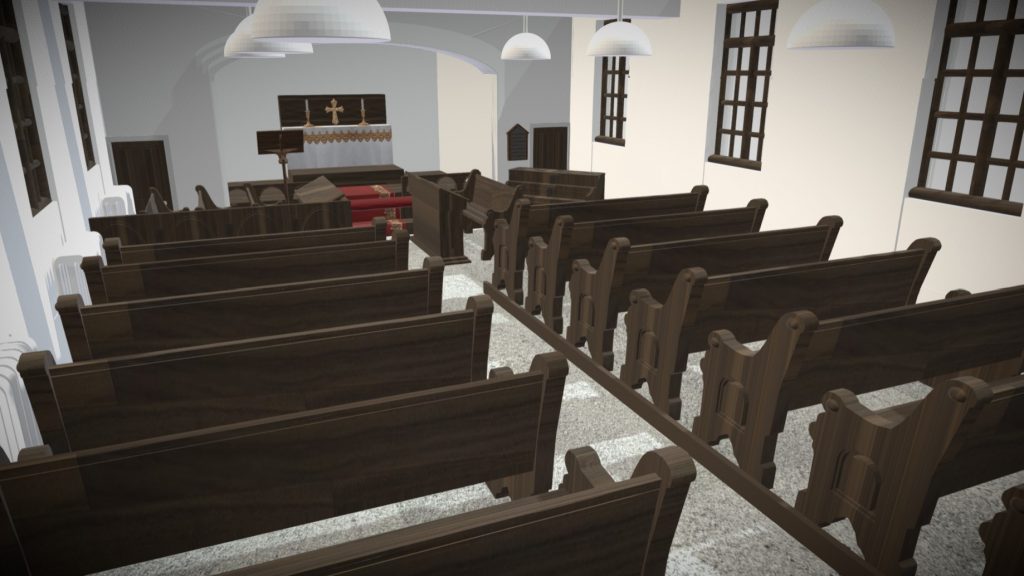
Old Sun Chapel
This computer reconstruction approximates how the…
Read moreThis computer reconstruction approximates how classrooms at Old Sun Indian Residential school would have appeared. This reconstruction was created using historic photographs as well as descriptions provided by former students.

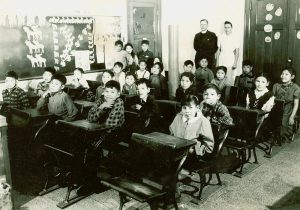
Computer reconstruction and gaming technology provide a mean of visualizing how different areas of Old Sun might have appeared in the past. Dr. Katayoon Etemad who is a computer science researcher at the University of Calgary created this reconstruction of a classroom at Old Sun Indian Residential School as it may have appeared in the 1960’s. The model was created using historic photographs and the memories of residential school survivors who attended Old Sun Indian.
This image gallery shows historic and modern photos of Old Sun College's classrooms. Click on photos to expand and read their captions. If you have photos of Old Sun that you would like to submit to this archive, please contact us at irsdocumentationproject@gmail.com.
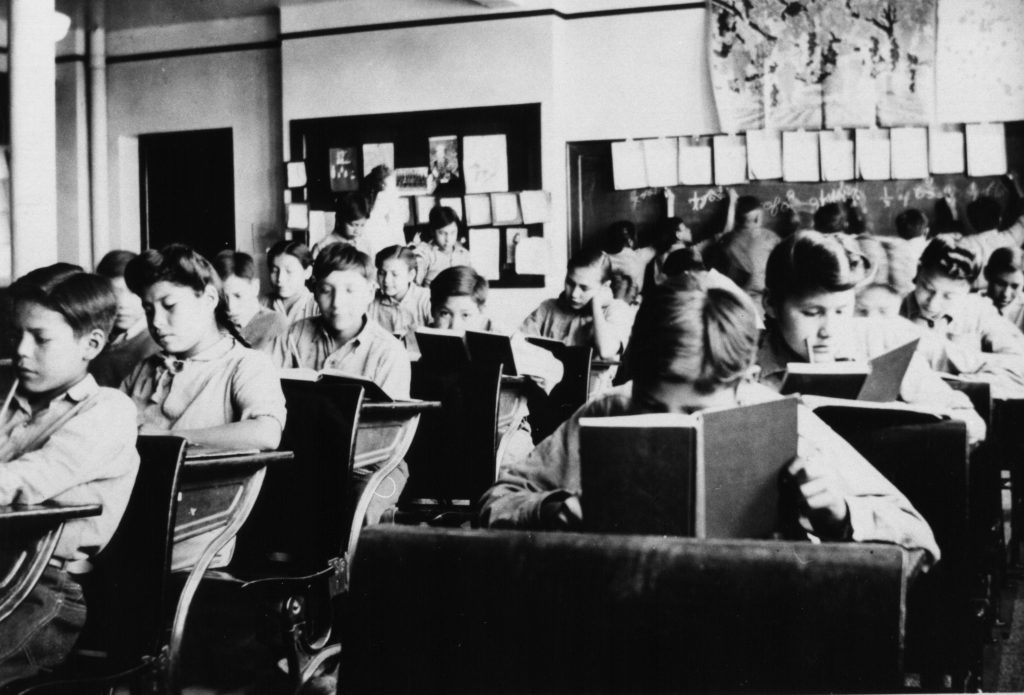
![Formal classroom photo of students at their desks. Principal and teacher stand at the back - [194-?]. P7538-1015 from The General Synod Archives, Anglican Church of Canada](https://irs.preserve.ucalgary.ca/wp-content/uploads/P7538-1015.jpeg)
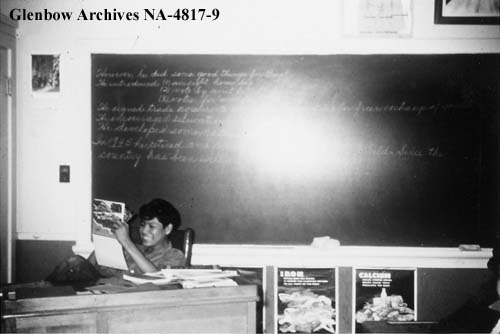
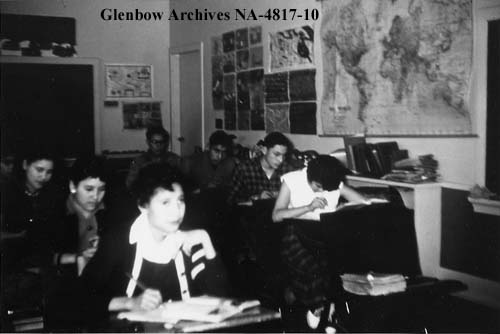
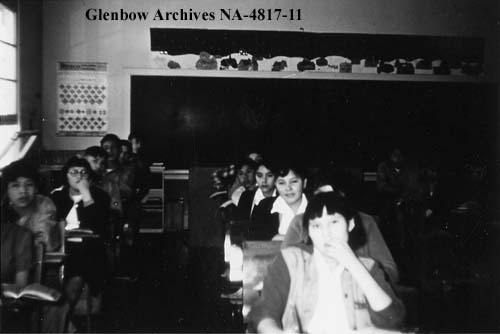
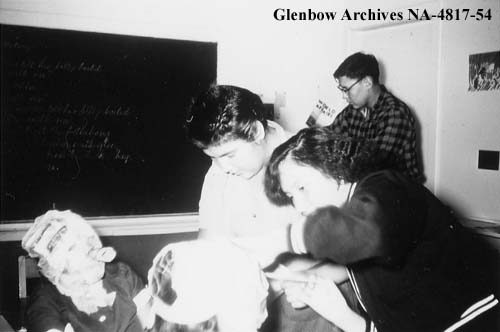
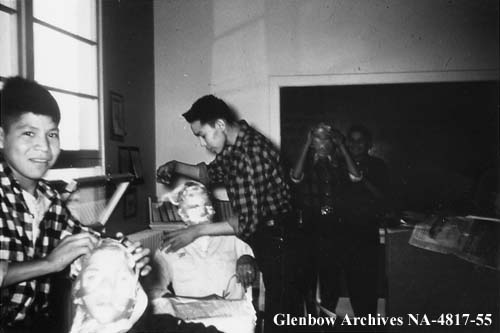
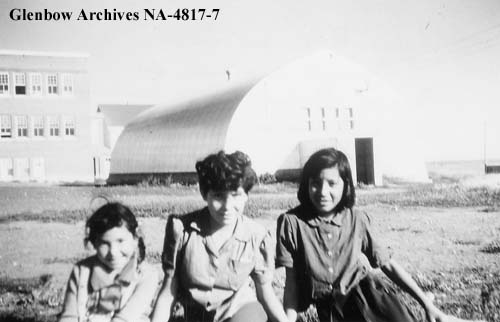
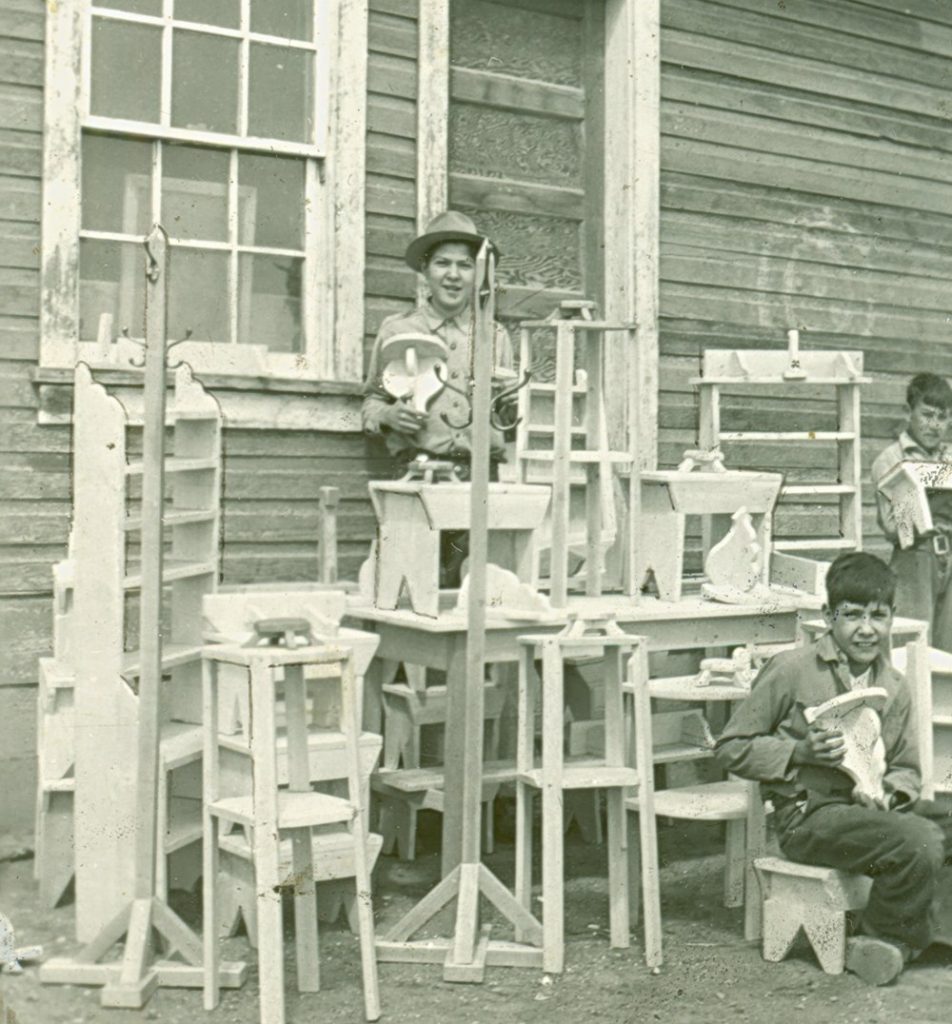
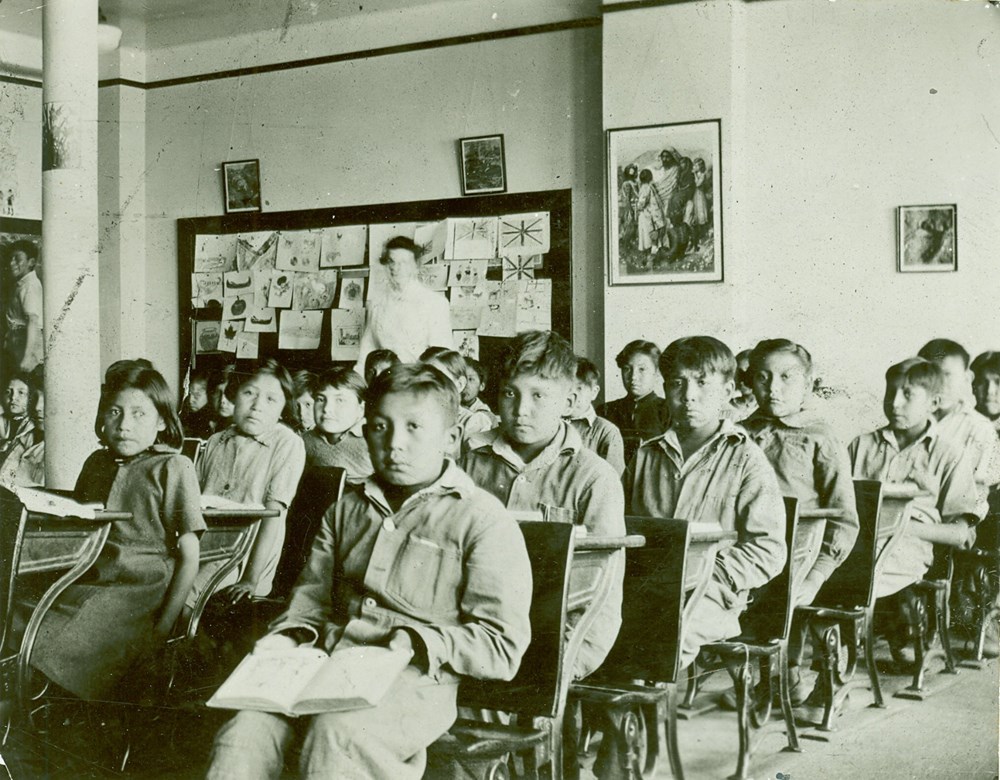
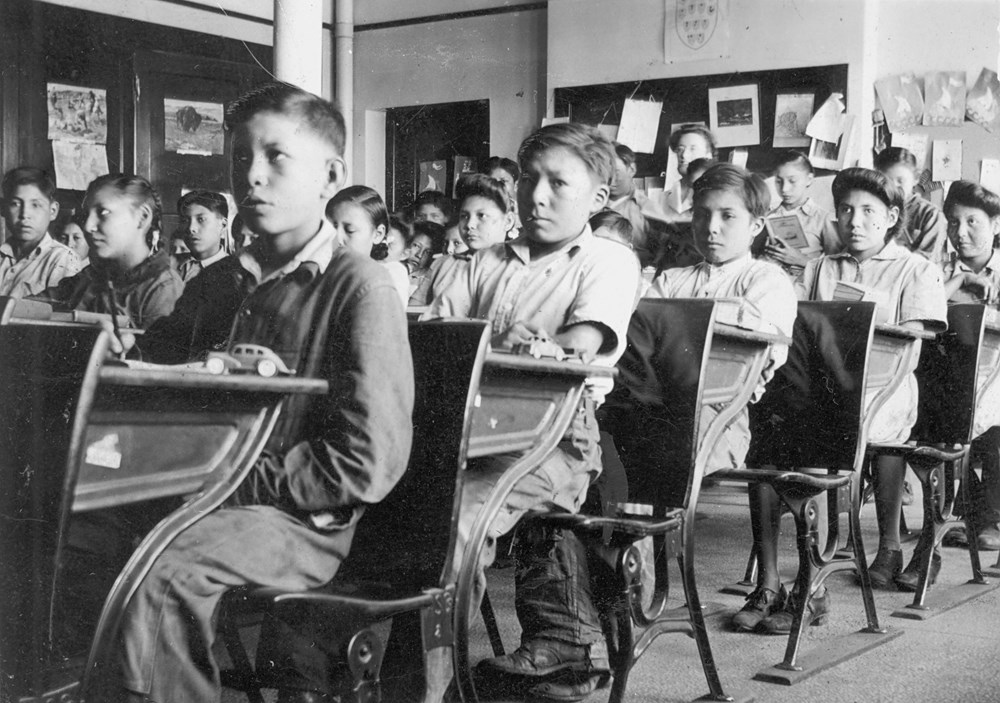
![Grades 3 and 4. View of classroom with students at their desks and teacher standing at rear- [194-?]. P75-103-S7-193 from The General Synod Archives, Anglican Church of Canada](https://irs.preserve.ucalgary.ca/wp-content/uploads/P75-103-S7-193.jpeg)
![Senior students. Photo consists of senior girls at their desks, boys standing against side wall, and Principal and staff member standing at rear- [194-?]. P75-103-S7-201 from The General Synod Archives, Anglican Church of Canada](https://irs.preserve.ucalgary.ca/wp-content/uploads/P75-103-S7-201.jpeg)
![Grades 4 and 5 classroom with students working at their desks- [194-?]. P75-103-S7-205 from The General Synod Archives, Anglican Church of Canada](https://irs.preserve.ucalgary.ca/wp-content/uploads/P75-103-S7-205.jpeg)
![Senior class and teacher Miss J. Rutherford. - [194- ?]. P75-103-S7-206 from The General Synod Archives, Anglican Church of Canada](https://irs.preserve.ucalgary.ca/wp-content/uploads/P75-103-S7-206.jpeg)
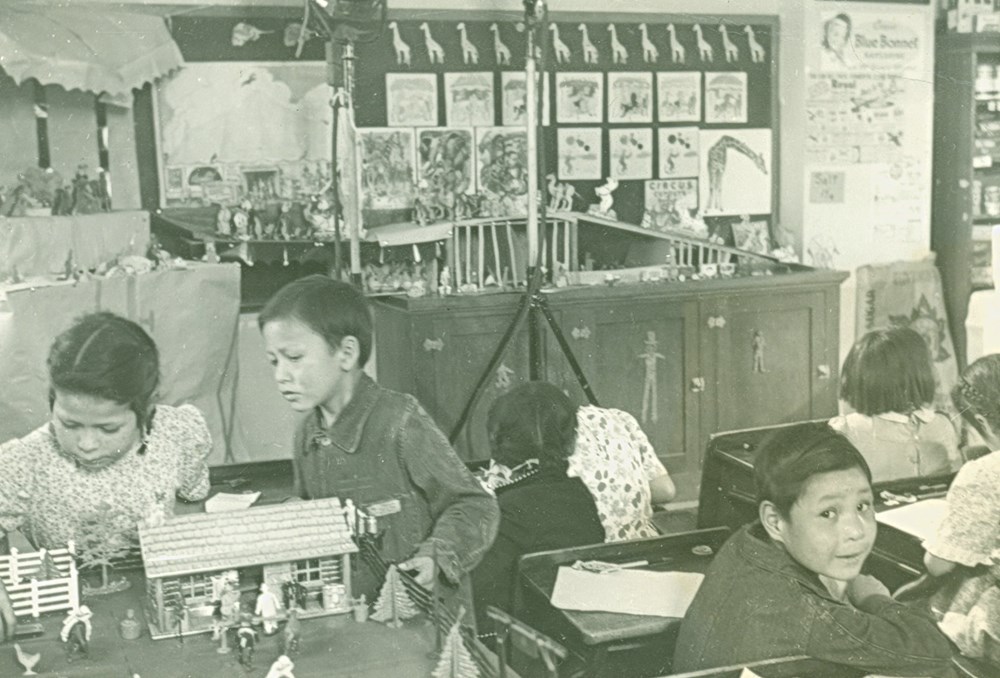
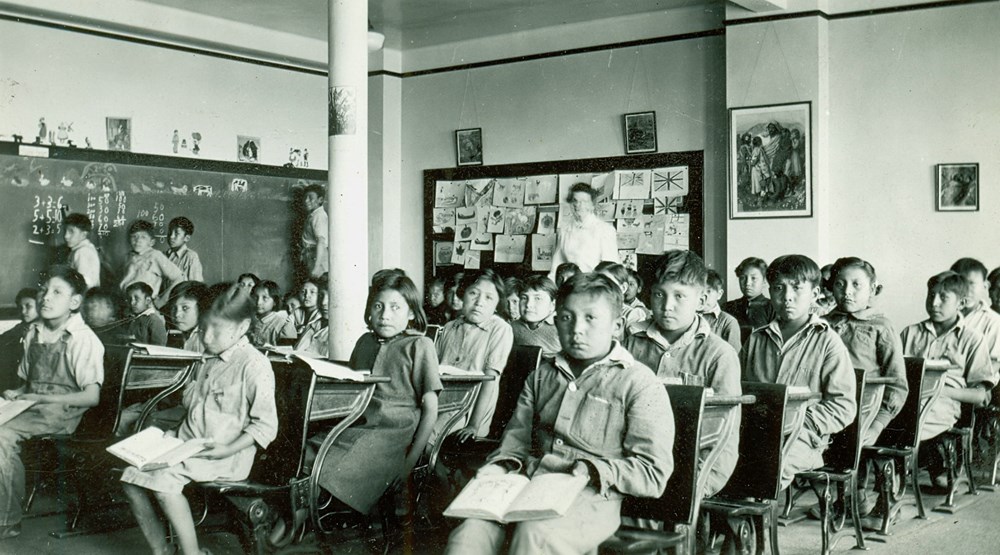
Hello I am Niimistostima, my white name is Ernest Barry Yellow Fly. I am going to tell a story of those that went to residential school, of what happened. I am going to tell the story of those who snuck out. I am first going to say is that we were abused, when we went to residential school. I am going to talk about the junior boy’s dorm, I am going to say it in English. How we were treated so badly some wanted to sneak out and ok this… it was night, late afternoon. These boys were saying they were going to sneak out, they were lonely, some of them wanted to go home. There they were, they started tying blankets together, then they rappelled down the window. Then they each rappelled down. They got caught, this teacher saw them, he worked at night. Then they ran away. They were brought back one by one, I don’t know if they got strapped. The reason I told this story is because it was not very good when we went to school. There was a lot that wanted to go home or sneak away. They got into trouble if they snuck away. So, this is one story I talked about.
Okay, here is another one, we weren’t fed properly when we went to school, the same, junior boy’s dorm. Some used to sneak out, they snuck to the kitchen. They scrounged around for food stuff, they would come back upstairs and feed each of us, that’s how we got treated bad they wouldn’t feed us properly but the teachers and workers, they ate good. We all saw how they ate. For us, our food was meager. So that’s why some went to get stuff to eat. They got stuff from the kitchen and came back upstairs; they would ration out the food to us. Another one, this is where I end my story.
–Niimistostima, Ernest Barry Yellow Fly
Oral interview with Niimistostima, Ernest Barry Yellow Fly. Conducted, translated, and transcribed by Gwendora Bear Chief. Old Sun Community College, June 1, 2022.
Featured Image: The new Blackfoot school from the rear. – [193-?]. M55-01-P52 from The General Synod Archives, Anglican Church of Canada.
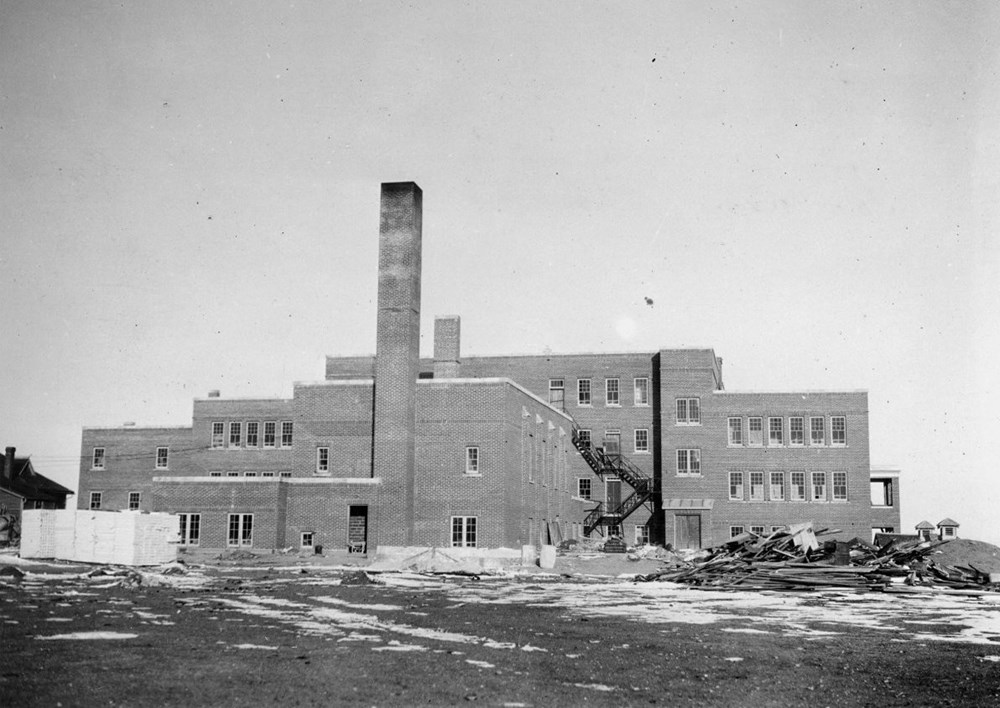

This computer reconstruction approximates how the…
Read more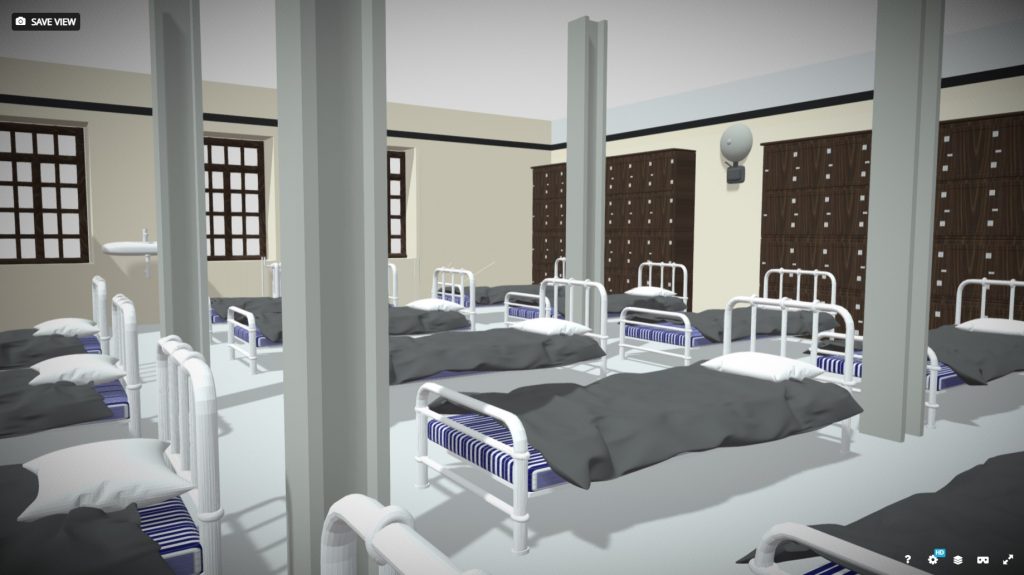
This computer reconstruction approximates how the…
Read more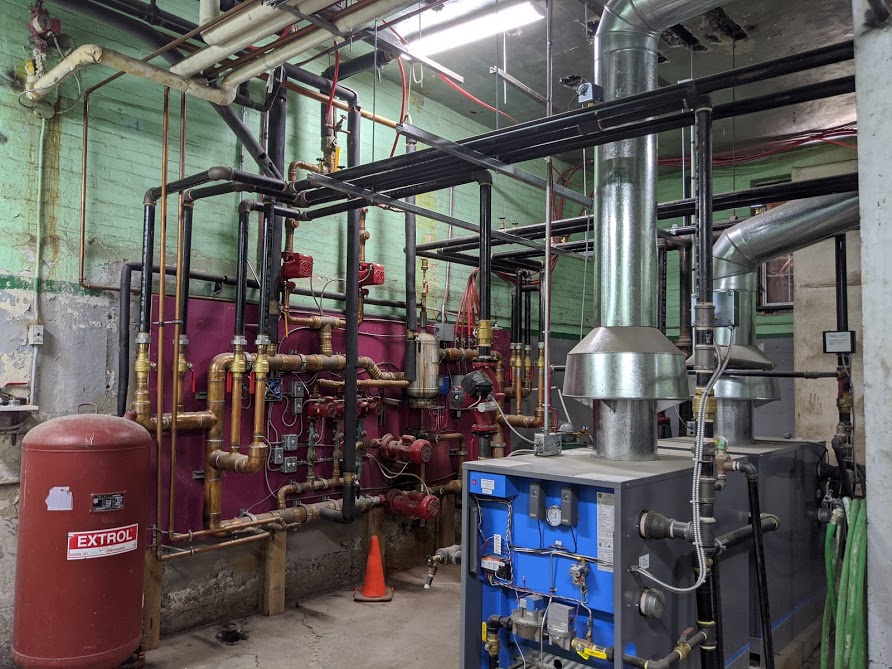
The boiler room and former coal shoot at Old Sun C…
Read more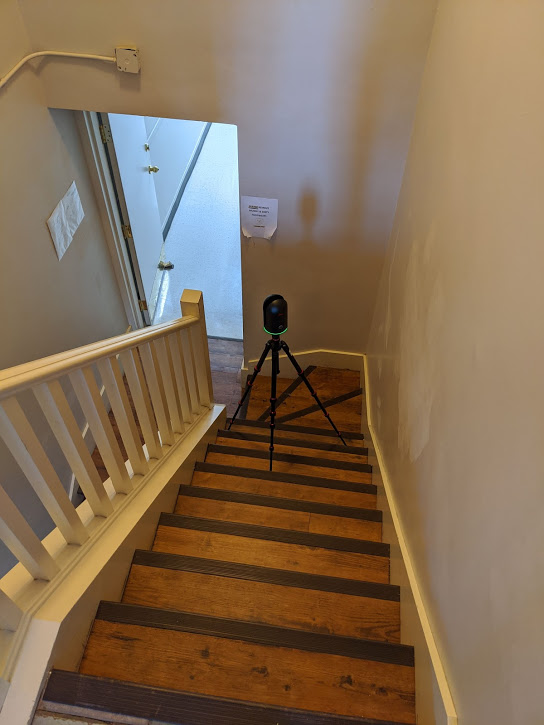
The Annex at Old Sun Community College. This Area…
Read more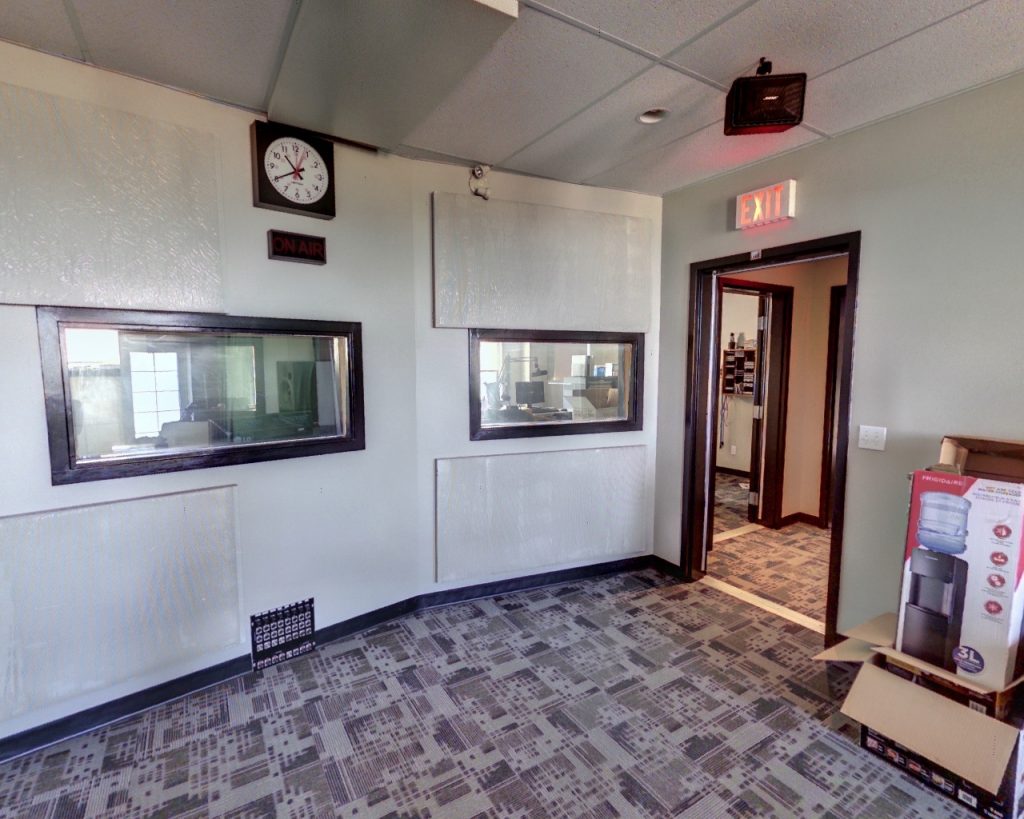
The Fourth Floor of Old Sun Community College (OSC…
Read more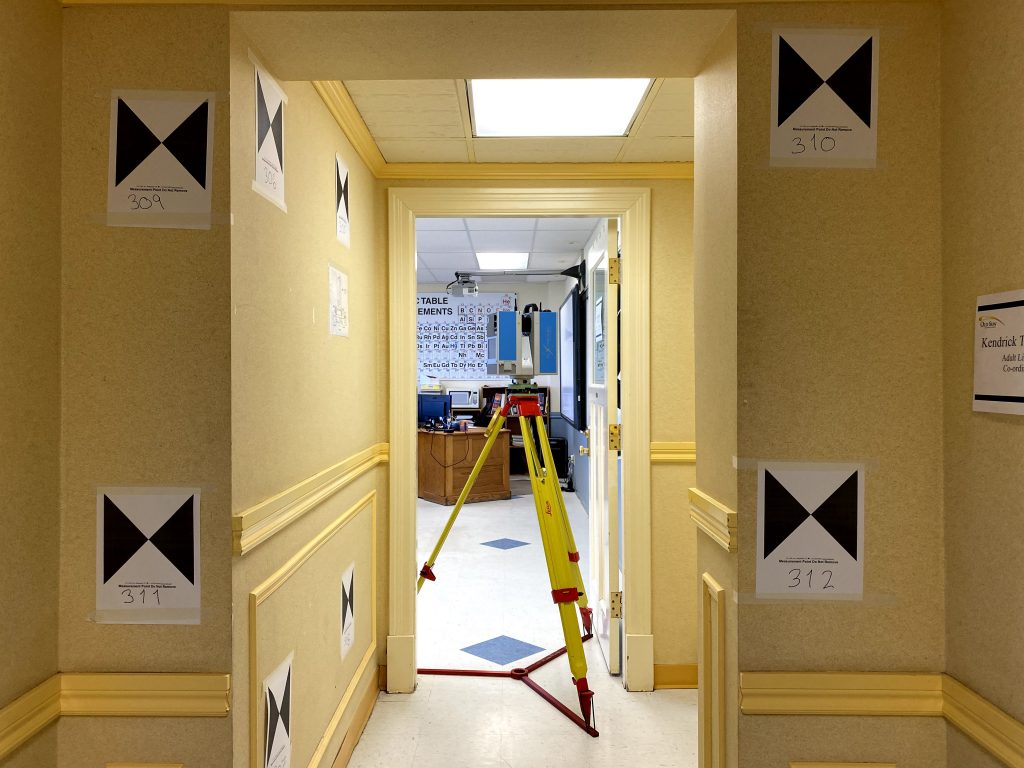
The Third Floor of Old Sun Community College (OSCC…
Read more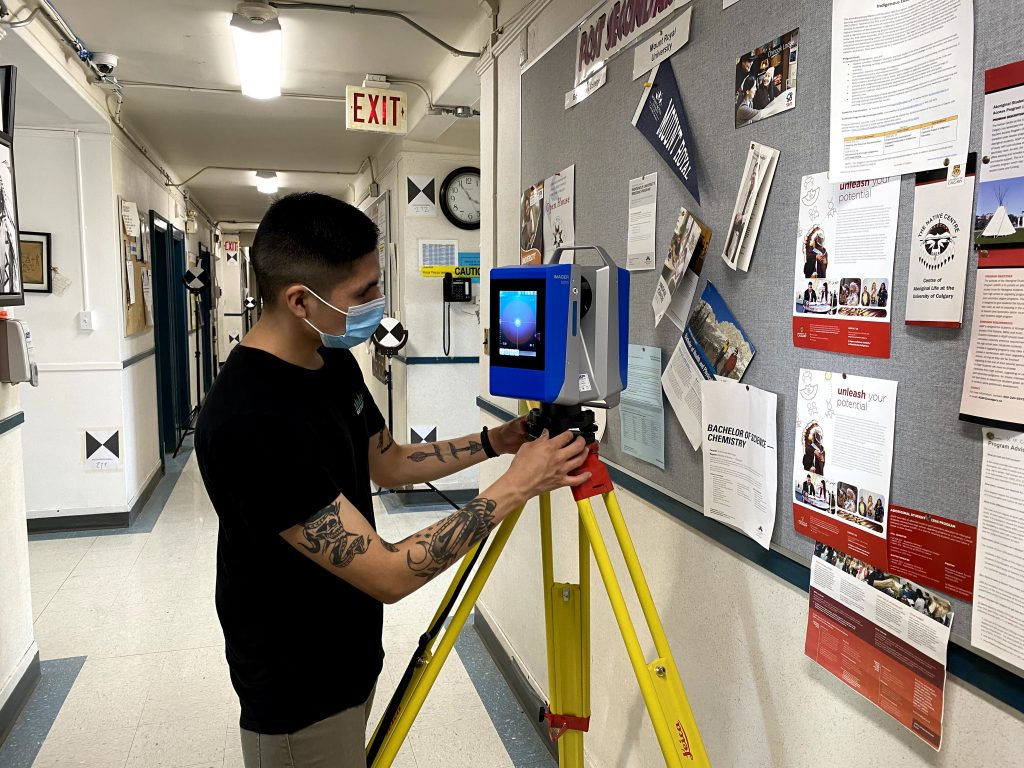
The Second Floor of Old Sun Community College (OSC…
Read more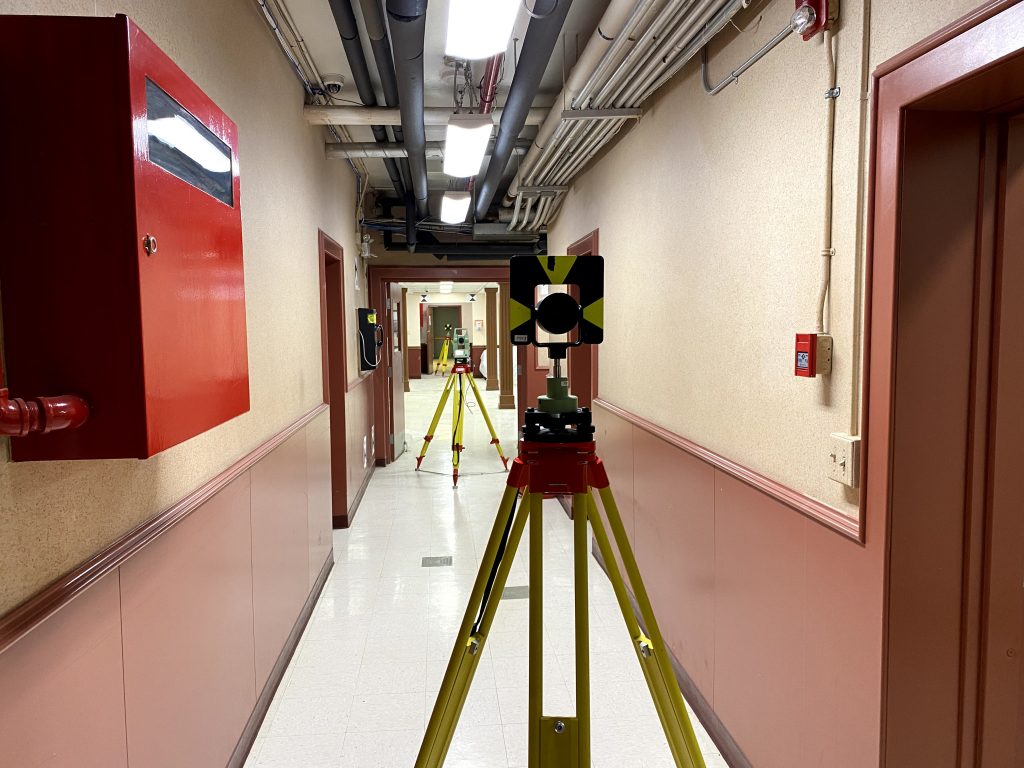
The First Floor/Basement of Old Sun Community Coll…
Read more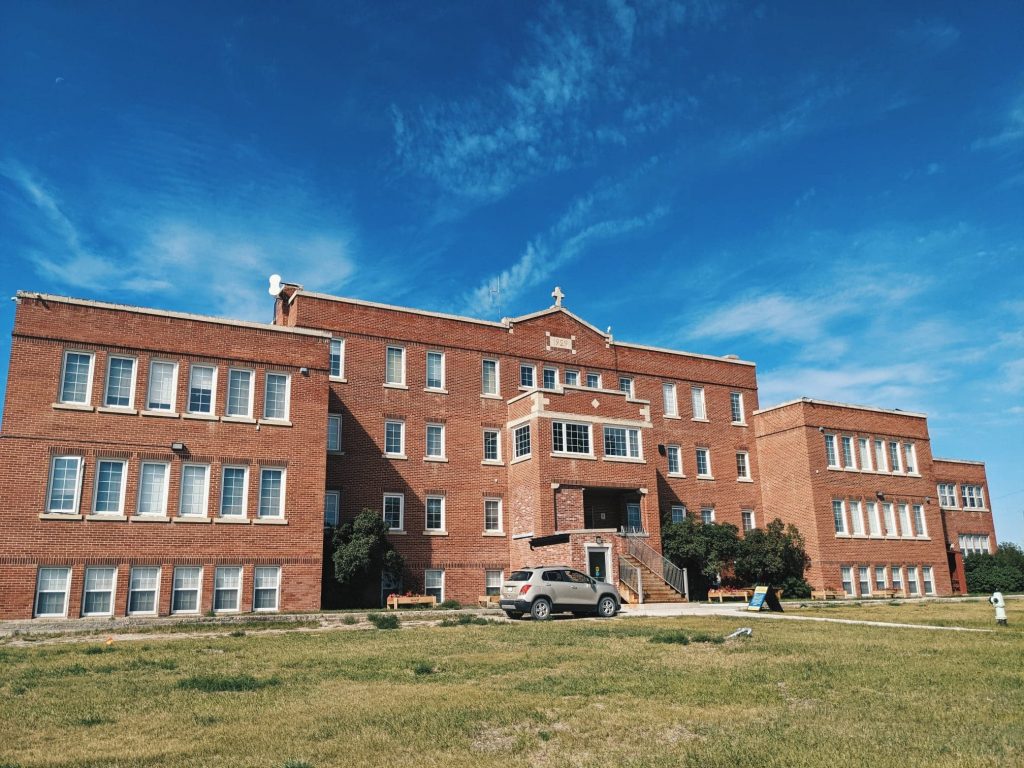
Old Sun Indian Residential School operated between…
Read more